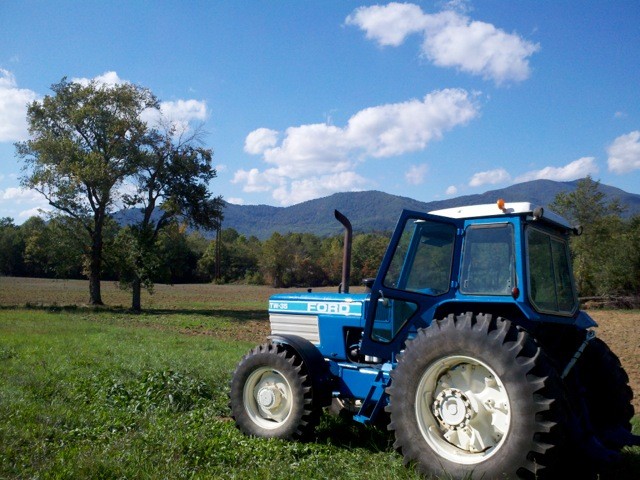Organic demands
The old economic theory of supply and demand is at the core of the organic food movement. When consumers seek out organic produce, they fuel the local food network and put money in farmers' pockets. But what if there isn't enough organic food to go around?
A recent study by the Carolina Farm Stewardship Association finds that "there is a considerable gap between consumer demand and current supply." The CFSA survey of wholesalers, retailers and processors in North and South Carolina concluded that Carolina farmers are missing out on approximately $7 million in potential revenue.
Michael Porterfield, owner of New Sprout Organic Farms in Black Mountain, says, "We can't grow near enough [organic food] to meet the demand." Porterfield says one of the biggest obstacles for farmers is finding land that qualifies for organic certification. USDA regulations require that land must not be treated with prohibited substances for three years before a farm can become certified organic.
The Appalachian Sustainable Agriculture Project says that getting an exact count of the number of organic farms in our region is tricky. ASAP reports that only 34 farms in Western North Carolina are certified organic, although 277 use organic farming practices. Finding room to grow may be at the heart of the problem.
"You wish you had more land to supply more customers, " says Porterfield. New Sprout Organic Farms sells produce to Ingles, Earth Fare and Whole Foods, as well as local co-ops. This model has been successful for his farm, but there are inherent difficulties in growing organic food.
The CFSA identified broccoli and tomatoes as the two main crops that can’t keep up with current demand. Porterfield predicts that the region's current "organic food explosion" will lead to a rise in prices for organic produce.
While this might seem like a negative to consumers, Porterfield says that people are "spending their dollars on quality not quantity." He hopes that this potential rise in prices will lead to more opportunities for organic farmers, provided they can find the right land (see Farmers and Farmland: A match made in heaven).
The CFSA aims to double the size of the organic sector in our region by 2020, a goal that suits our region's emphasis on farm-fresh food. The demand for organic food is out there; now we just need more tomatoes. http://www.carolinafarmstewards.org, http://www.newsproutfarms.com.
Farmers and farmland: a match made in heaven?
Many new farmers find themselves with a perplexing dilemma: They have big dreams for fields of peppers and rows of corn, but no land on which to plant the seeds.
As older farmers reach retirement age — many without children willing to take over the family farm — land is certainly out there. But how does a new farmer find these opportunities without a network of old-timers to point them in the right direction?
Soon our region will have a farmers seeking farmland matchmaker. The GroWNC project is fulfilling its mission with a new initiative through N.C. State University. Their goal is to work with local agencies and nonprofits to pair new growers with old homesteads. The organization recently announced funding for a part-time coordinator.
This new farm go-between will encourage more than just business connections. "Think of the mentoring opportunities," says N.C. State associate professor Jeanine Davis. She anticipates that the new hire will seek out farmers who are willing to sell at lower prices to help preserve their family farms.
Davis hopes that this new position will "help keep our precious farmland protected" while giving young farmers access to land. Just imagine a seasoned grower showing a young upstart around the homestead, fostering lifelong dreams and planting a legacy of sustainability.
For more information, visit http://www.carolinafarmstewards.org.
Correction: A ton doth not make a pound
You may have scratched your straw hat when you saw last week's article on The Lord's Acre, in which we woefully underreported the garden's harvest as 34 pounds of food in the past four years. In fact, the volunteer-driven garden in Fairview grew 34 tons of food during that time. Please excuse our mistake. Perhaps we've spent too much time in the dirt and not enough time with the red pen and calculator this spring.






Before you comment
The comments section is here to provide a platform for civil dialogue on the issues we face together as a local community. Xpress is committed to offering this platform for all voices, but when the tone of the discussion gets nasty or strays off topic, we believe many people choose not to participate. Xpress editors are determined to moderate comments to ensure a constructive interchange is maintained. All comments judged not to be in keeping with the spirit of civil discourse will be removed and repeat violators will be banned. See here for our terms of service. Thank you for being part of this effort to promote respectful discussion.